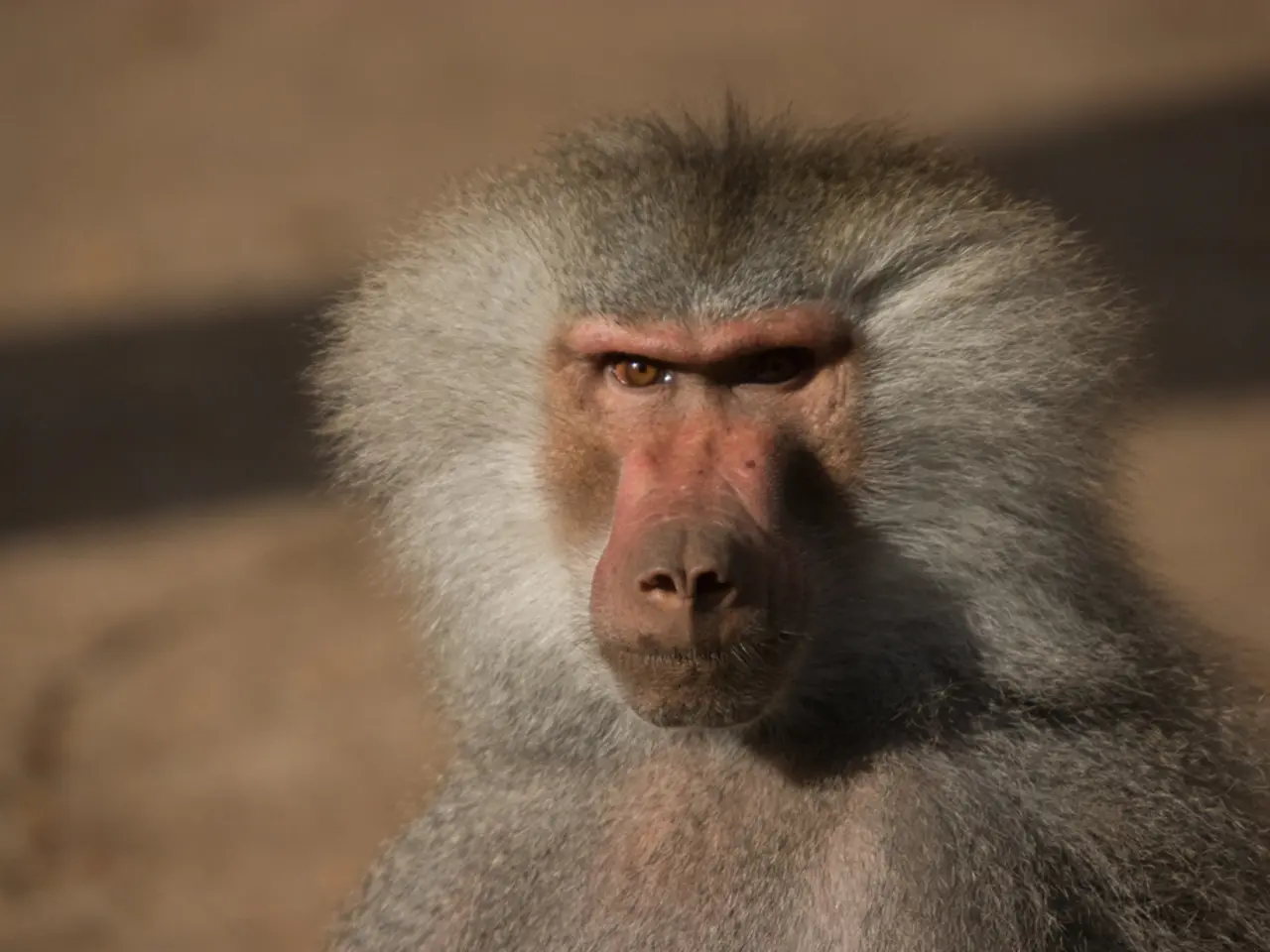Zoo administrator faces lethal threats following baboon fatalities incident
The Nuremberg Zoo has found itself in the midst of controversy after it was revealed that twelve Guinea baboons were killed last week due to space reasons [1][2][3][5]. The decision to cull the baboons has been met with criticism from animal rights activists, who have pledged to file criminal complaints and have set up a protest camp near the zoo [2][3][5].
Despite the backlash, the zoo and its director, Dag Encke, have defended the decision, stating that the cull was a last resort after years of consideration due to severe overcrowding and lack of rehoming options [1][2][3][5]. However, as of early August 2025, there is no publicly available information indicating that any formal criminal or official investigation has been opened against Dag Encke regarding the killing of the baboons [1][2][3][4][5].
The Middle Franconia Police Headquarters is currently reviewing around 170 messages for potential criminal content, but no specific investigation has been launched against Dag Encke [1][2][3][4][5]. The complaints primarily focus on investigating whether there was a reasonable cause for the baboon killings according to paragraph 17 of the Animal Welfare Act [1][2][3][4][5].
The zoo has stated that every peaceful protest is okay with them, and they have faced hundreds of complaints, including dozens of unspecified threats via social media, letter, and email [1][2][3][4][5]. Ten of these threats against Dag Encke have been reported to the police [1][2][3][4][5]. The director himself has received murder threats due to the baboon killings [1][2][3][4][5].
Activists have criticized the zoo and threatened to file lawsuits, and protests have occurred, including arrests of protesters [2][3][5]. However, as of the latest reports from early August 2025, there is no confirmed update on any investigation status against Director Dag Encke regarding the baboon killings at Nuremberg Zoo [1][2][3][4][5].
Directors at community and employment policies may be under pressure to address public outcry regarding the Nuremberg Zoo incident, as threats and protests have escalated due to the controversial baboon cull [1][2][3][4][5]. The science and health-and-wellness sectors have voiced concerns over the potential psychological impact on visitors when they learn about the mental-health consequences of threats against the zoo director [1][2][3][4][5].
In the politically charged atmosphere, policymakers are discussing the repercussions of this incident in general-news discourse and considering if zoo management followed guidelines under paragraph 17 of the Animal Welfare Act [1][2][3][4][5]. Various therapies-and-treatments have been suggested for addressing the stress and distress caused by the war-and-conflicts-like tension between protesters and zoo officials [1][2][3][4][5].
Animal rights activists have collaborated with health professionals to devise peaceful, evidence-based approaches for addressing the situation, as the zoo continues its daily operations within the tense climate [1][2][3][4][5]. They plan to employ these strategies for managing public relations, addressing media inquiries, and ensuring the safety of visitors, staff, and the remaining animal population at the Nuremberg Zoo [1][2][3][4][5].
Further investigations into the baboon cull may influence future employment policies for similar situations, while also having broader implications for wider animal welfare and conservation practices in the unpredictable realm of politics and public opinion. [1][2][3][4][5]




